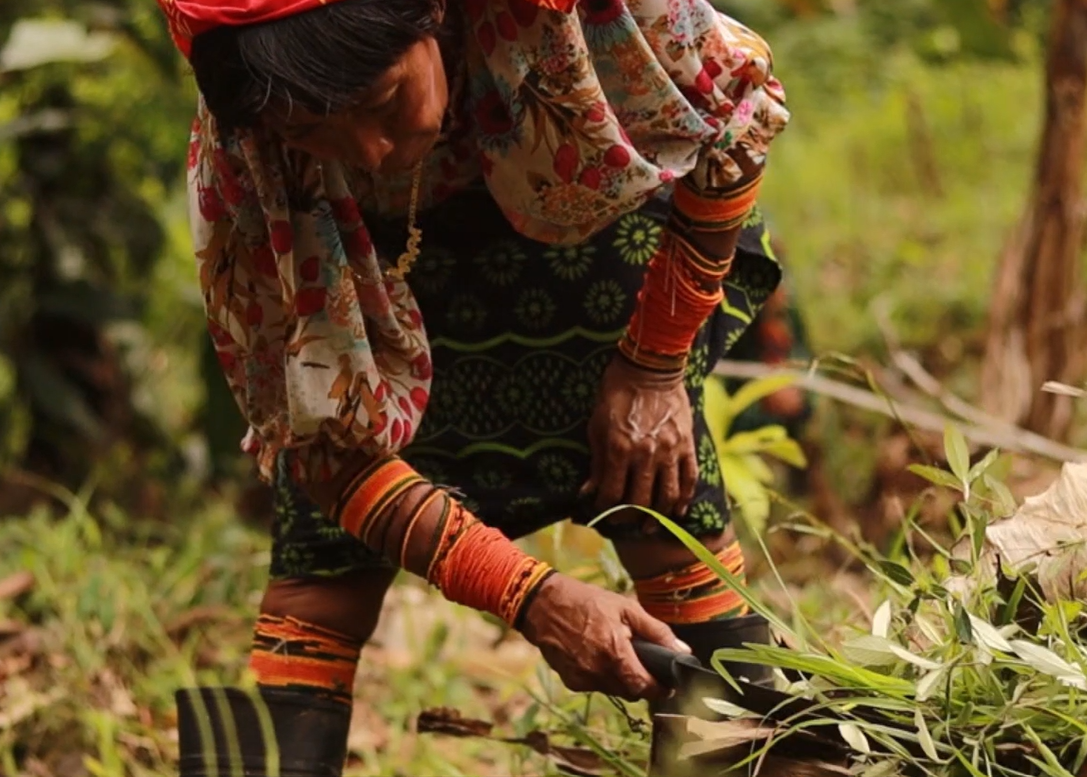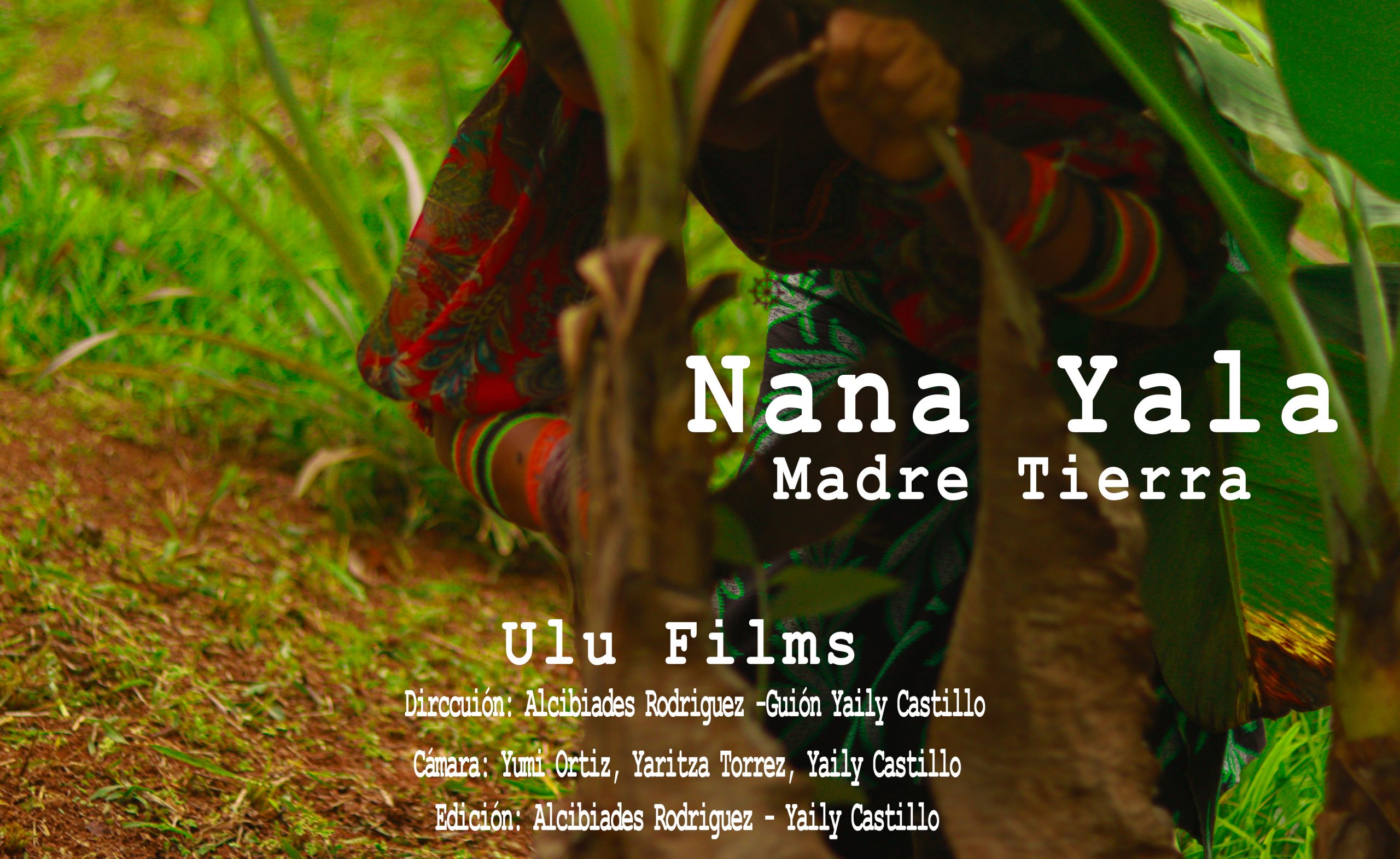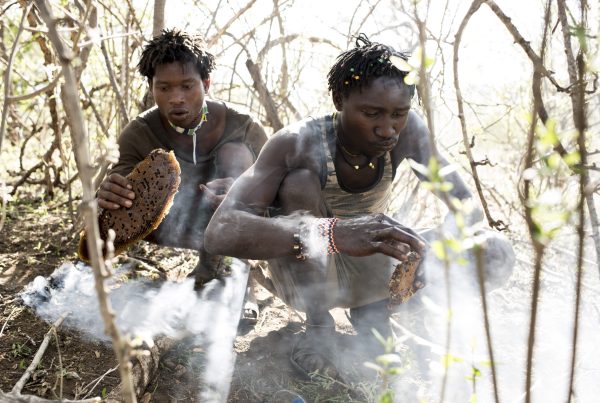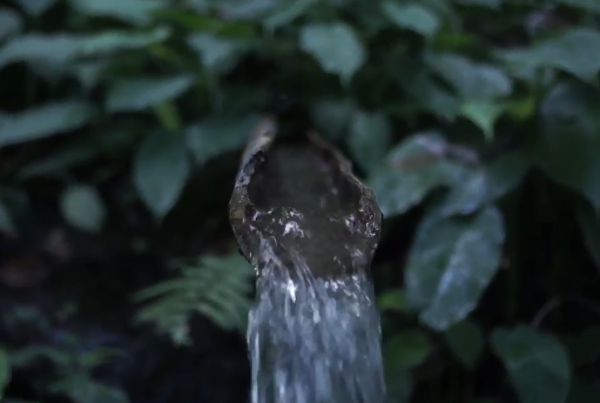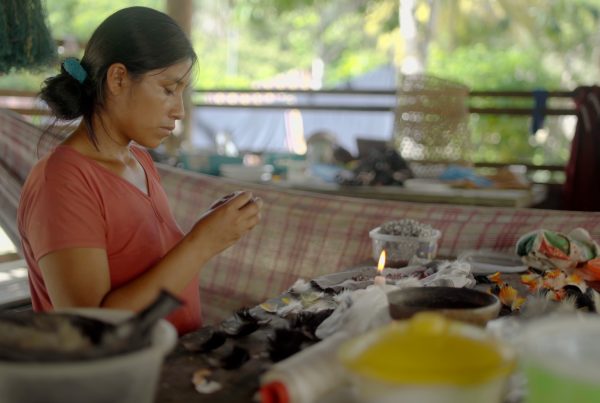Nana Yala (Mother Earth) follows a collective of Indigenous women from the Digir Community in Panama as they work together on their fields to produce crops such as yuca, ñame and corn. The film highlights the vital role they play in maintaining food security, as well as in adapting to climate change.
This short documentary was produced, directed and edited by Indigenous filmmakers Alcibiades Rodriguez and directed by Yaily Castillo, from the Guna Yala region in Panama. They are both members of the indigenous NGO CENDAH (The Centre of Environmental and Human Development) and work in other organisations to bring workshops, training and education to people in Guna Yala. Yumi Ortiz and Yaritza Torrez also helped film the documentary.
Both Alcibiades and Yaily took part in filmmaking training by If Not Us Then Who?, an organisation that works with communities to make films to highlight the role indigenous peoples and local communities play in protecting our planet.
This film is part of a series examining the critical contributions that Indigenous peoples and local communities make to protecting the world’s biodiversity, and complements the Local Biodiversity Outlooks. It is a collaboration between the Local Biodiversity Outlooks, If Not Us Then Who? and Nia Tero.
Other films in this series:
- Traditional knowledge provides resilience to a changing climate
- Nana Yala (Mother Earth)
- Zenu Indigenous Women: Protectors and Growers of Mother Earth
- Froxán Commons – A community restoration project in Galicia, Spain brings native species back to their forests
- Li Kiampka (Our descendants)
- Minta Ari – Constant rain in a Dayak community in Indonesia
- How the Ogiek of Kenya are using mapping to advocate for their land rights
- A Pgaz K’Nyau community in northern Thailand supports biodiversity and their local economy by producing honey
- Tarimat Pujut: Living in Harmony with Nature in Peru
